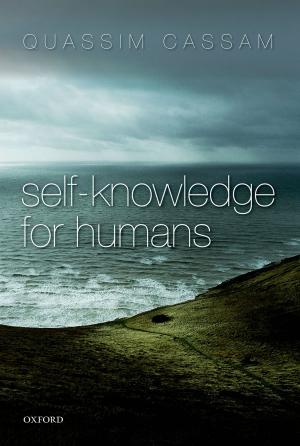Just Security in an Undergoverned World
Nonfiction, Social & Cultural Studies, Political Science, International, International Relations, Politics, History & Theory| Author: | ISBN: | 9780192527820 | |
| Publisher: | OUP Oxford | Publication: | January 19, 2018 |
| Imprint: | OUP Oxford | Language: | English |
| Author: | |
| ISBN: | 9780192527820 |
| Publisher: | OUP Oxford |
| Publication: | January 19, 2018 |
| Imprint: | OUP Oxford |
| Language: | English |
Just Security in an Undergoverned World examines how humankind can manage global problems to achieve both security and justice in an age of antithesis. Global connectivity is increasing, visibly and invisiblyin trade, finance, culture, and informationhelping to spur economic growth, technological advance, and greater understanding and freedom, but global disconnects are growing as well. Ubiquitous electronics rely on high-value minerals scraped from the earth by miners kept poor by corruption and war. People abandon burning states for the often indifferent welcome of wealthier lands whose people, in turn, draw into themselves. Humanity's very success, underwritten in large part by lighting up gigatons of long-buried carbon for 200 years, now threatens humanity's future. The global governance institutions established after World War II to manage global threats, especially the twin scourges of war and poverty, have expanded in reach and impact, while paradoxically losing the political support of some of their wealthiest and most powerful members. Their problems mimic those of their members in struggling to adapt to new problems and maintain trust in norms and public bodies. This volume argues, however, that a properly mandated, managed, and modernized global architecture offers unparalleled potential to midwife solutions to intractable issuesfrom violent conflict and climate change to poverty and pandemic diseasethat transcend borders and the capacities of individual actors. It offers just security as a new framework for charing innovating solutions and strategies for effective and essential global governance.
Just Security in an Undergoverned World examines how humankind can manage global problems to achieve both security and justice in an age of antithesis. Global connectivity is increasing, visibly and invisiblyin trade, finance, culture, and informationhelping to spur economic growth, technological advance, and greater understanding and freedom, but global disconnects are growing as well. Ubiquitous electronics rely on high-value minerals scraped from the earth by miners kept poor by corruption and war. People abandon burning states for the often indifferent welcome of wealthier lands whose people, in turn, draw into themselves. Humanity's very success, underwritten in large part by lighting up gigatons of long-buried carbon for 200 years, now threatens humanity's future. The global governance institutions established after World War II to manage global threats, especially the twin scourges of war and poverty, have expanded in reach and impact, while paradoxically losing the political support of some of their wealthiest and most powerful members. Their problems mimic those of their members in struggling to adapt to new problems and maintain trust in norms and public bodies. This volume argues, however, that a properly mandated, managed, and modernized global architecture offers unparalleled potential to midwife solutions to intractable issuesfrom violent conflict and climate change to poverty and pandemic diseasethat transcend borders and the capacities of individual actors. It offers just security as a new framework for charing innovating solutions and strategies for effective and essential global governance.















